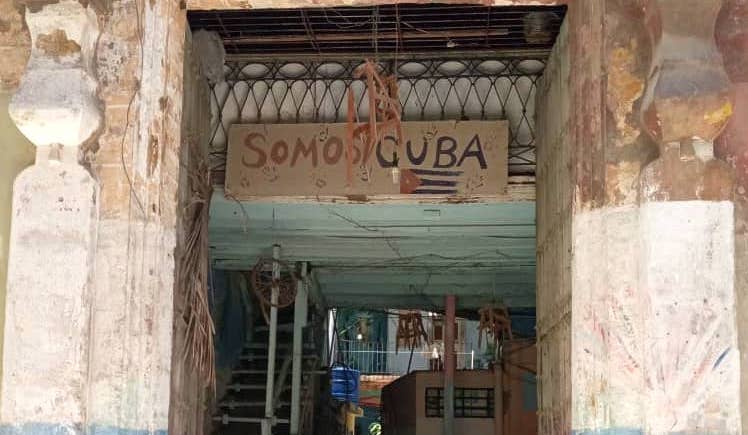There is no beast more fearsome than that which, aware that its end is nigh, reserves enough energy for a final few blows. "Nothing to lose" is the worst of motivations, and this is the situation of the Cuban government.
Last October, in the article "Is Castroism Coming to an End? What the Figures Say", we estimated that Cuba's international financial reserves were so low that it was foreseeable that by mid-2021 they would be depleted.
Since then, a series of events and information has only reinforced this supposition. Castroism faces a desperate situation. It is a dying beast.
Of course, Díaz-Canel and his gang could turn the ship around, 180 degrees, by undertaking real economic reform; and without even inventing anything, just going down the liberal path that their dictatorial counterparts China and Vietnam took, with resounding success.
The formula for getting out of underdevelopment is clear (managing development is more complex) and, although it may not seem like it, Cuba is one of the countries that could implement and benefit from reform with the greatest success and immediacy. This is why it is so painful to see the island ailing due to the selfishness of a few.
The country's ruling elites, aware of the impossibility of letting go of the country's economic reins (under the conditions specific to Cuba) without loosening their totalitarian grip on power, instead are strengthening state companies (or trying to) and investing much more than is sensible in the construction of hotels. Thus, they are sweetening and enlarging the cake that they will slice up among the cadre of new oligarchs: the generals, colonels and high-ranking bureaucrats who will inherit the spoils when the system collapses.
Today, and with bank accounts increasingly in the red, the government's priority is to stall while waiting for a miracle from Saint Putin, Saint Jinping, or, above all, Saint Biden.
Buying time, however, is not the same as waiting passively.
Without the minimum of resources necessary for Cubans to live, pliantly counting on a plate of food, without protesting, and until a sugar daddy appears to maintain it, Castroism is tightening its clutch on society, preparing to replace cash with a computerized system that will allow it to monitor and individually record the life of each Cuban, each small business, and each self-employed person, in addition to greatly reducing transaction costs in the real economy.
The recent announcement that prepaid (debit) cards in dollars are being created for use within the country (it has not yet been specified how they will be used or where they will be sold) is a point of convergence between financial bankruptcy and an evolution towards citizen control through the computerization of commerce.
The news set off shock waves. Many were deluded, believing they could finally buy at MLC stores and that their pesos would be of value, but it was soon specified that in no case would they be sold at the official exchange rate in CUP. The Central Bank of Cuba itself has clarified that it does not have the money to do such a thing, but that it is preparing a new "banking product."
The desperate need for dollars has led the Government to practically pick the pockets of travelers who arrive on the island. They do not even take into account the negative effect that measures such as these prepaid cards will have on the extra hotel spending of tourists, or the already announced non-repurchasing of Cuban pesos at airports. They are so desperate that what are obviously shortsighted policies, with benefits only in the short term seem to them like good policy.
The truth is that these cards are a coherent step towards the elimination of cash. If the Cuban government has excelled at one thing, it is turning apparent setbacks into political victories. As Hayek pointed out: "emergencies" have always been pretexts for eroding individual freedom. Emergencies, crises, are the natural habitats of Castroism.
The diagnosis today is the same as last October: in mid-2021 the Cuban government will have no money, and the wounded beast will be more dangerous than ever.
However, its death throes can be dragged out. Absurd situations will spread, such as being able to pay digitally, via smartphone, in empty and dilapidated stores. Cuba will be a pioneer in digital money ... but with nothing to buy.
The comic side of the tragicomedy that is the "Cuban Revolution" vanished years ago. Let us hope that the tragic part, which has already produced too many tears, at least ends without bloodshed.
